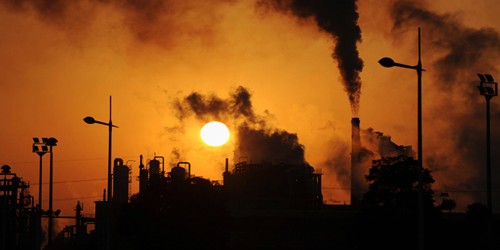Role of Government to Control the Pollution
The government will apply pollution controls in a variety of ways because the situation is too complex for just one approach to work. In order to cover different pollutants, kinds of pollution sources, economic conditions and technological features, the government will need its full arsenal of social motivators for environmental improvement. Following are the principal approaches that may be used.
(a) Legislative standards: Legislative standards enforceable in the courts of law Administrative bards may set standards enforceable in the court of law.
(b) Pollution standards: Zoning and other regulations which require new construction or new products to meet certain pollution standards.
(c) Tax incentive for pollution control equipment: Tax incentives for pollution control equipment such as faster depreciation or tax credits.
(d) Subsidies for pollution control equipment: Matching grants or subsidies for installation and operation of pollution control equipment.
(e) Monitoring, research and investigate: Monitoring research and investigative bodies which make reports, recommended legislation, and use the pressures of publicity such as the Council on Environment Quality.
(f) Denial of government contract and privileges: Denial of government contracts and other privileges to violators or perhaps granting privileges to nun-polluters, similar to veteran’s preference in government employment.
(g) Research grants for development: Research grants for development of new control methods, and demonstration grants to test than in service.
(h) Effluent charges for pollution: Effluent charges for pollution emissions such as a certain number of money for each ton of noxious fumes from a smokestack or each gallon of a chemical waste dumped into a river.
(i) Administration controls: The government is to a formed council in economic and environmental adviser they are advice to the president in preparation of an annual report on environmental quality to develop and recommend national policies.
(j) Incentives for environmental improvement: The government may offer various types of incentives work toward standards that may eventually be required. The major advantage of incentives is that they encourage voluntary improvement without the stigma of governmental force.
(k) Environmental standards: These standards are established by legislative action and applied by administrative agencies and courts. One type of standard is an effluent standard. The second type of standard is an environmental quality standard.
The regulatory approaches which appear to be used most often are incentives, environmental standards, and effluent charges.















